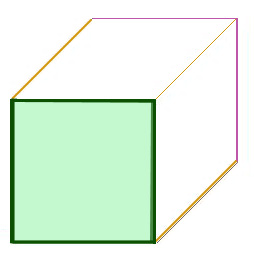Wilderness, global warming, & the American Mind
![]()
“We have built a greenhouse, a human creation, where once there bloomed a sweet and wild garden.”
Florida pine and saw palmetto habitat will be replaced by grasslands in the coming century.
Bill McKibben’s Argument:
The near future ….We have killed off nature—that world entirely independent of us which was here before we arrived & which encircled and supported our human society.”
p. 96.
So, for example, in chapter one he mentioned:
5.6 pounds of carbon dioxide exhause is given off for every burned gallon of gas.
see pp. 7-10, 29, 44.
“Instead…each cubic yard of air, each square foot of soil, is stamped indelibly with our crude imprint, our X.”
“We don’t know, we can’t know.”
“The salient characteristic of this new nature is its unpredictability, just as the salient feature of the old nature was its dependability.”
“…On a global scale it [nature] has been a model of reliability.”
That old dependable quality of nature’s stability has vanished an we must renegotiate our relation to this new ungovernable character we have helped to create by destabilizing the air and water of the globe.
p. 98-99.
But now it is broken for us, too—nature’s lifetime warranty has expired.”
p. 99.
“We are altering the climate…at ten to sixty times the natural rate of change.”
“It may turn out that we are not much more suited by our genes to quick
adaptation than the muskoxen.”
p. 100.
“The uncertainty itself is the first cataclysm, and perhaps the most profound one.”
We “can’t count on enough snow falling to fill the reservoirs that feed our faucets, or if we have to worry that too much water will evaporate in the heat,”
p. 100.
“Within safe bounds” is no longer available to us. “Nature has always provided the ‘deep, constant rhythms,’ is now altered beyond predictable recognition.
p. 102.
Does a new warming period mean a triggering of another ice age after 10,000 years?
A period of glaciations could commence within a century. [unlikely, but unknowable.
pp. 106-108.
Sea level will rise more quickly (not as great as 1990 predictions) but will affect half the world’s people and over flood the Maldive Islands, among others, with 187,000 residents.
pp. 109-116.
New York City’s draw on the fresh water supply of the Delaware River would have to be curtailed.
p. 116.
“And the literally blinding sun—will rob us of our sense of security…we live in a different world; therefore life feels different.”
p. 138.
"we must end such waste."
p. 142.
"one answer that people often suggest for the carbon dioxide crisis is that we plant more trees."
p. 143.
"Over the last century a human life has become a mchine for burning petroleum. At least in the West the system that produces excess carbon dioxide is not only huge and growing but also psychologically all-encompassing.
". . . about cars and power plants. . .–they are our lives."
p. 142.
Class discussion:
Consider these matters, when writing:
 Wilderness protection is really a three dimensional argument
Wilderness protection is really a three dimensional argument
One dimension is that it is our national heritage, see: Wilderness and the American Imagination
The second dimension is that Nash and Pollan differ over the merits of sustaining the future of one particular forest in Cornwall, Connecticut and the wilderness around the globe, because they disagree on the ethical underpinning of our choices.
| Cornwall, Connecticut | The Future of Wilderness |
|---|---|
| The ideal hits reality: | Island Civilization: |
The third dimension is that Aldo Leopold, who both Nash and Pollan aknowledge as an important inspiration, argues that we must realize "I think we have here the root of the problem. What conservation education must build is an ethical underpinning for land economics and a universal curiosity to understand the land mechanism. Conservation may then follow."
page 202, A Taste for Country.
Some crucial links to follow are:
Science Index | Site Analysis | Population Index | Global Warming Index | Nature Index | Research sites.
Terms | Glossary | Word webs | Basic vocabulary | Advanced Vocabulary | Antonyms | Synonyms